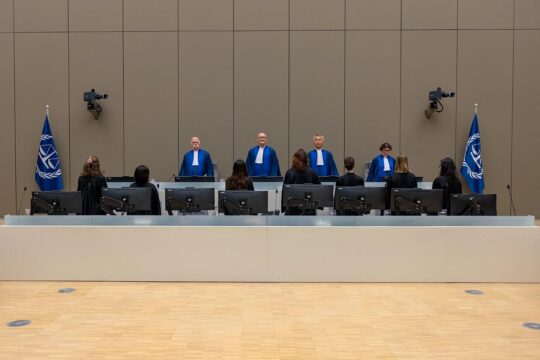Israel's order for Palestinians to evacuate from eastern Rafah in Gaza is "inhumane", the UN rights chief said Monday, warning that suffering and destruction would soar beyond already "unbearable" levels.
Volker Turk said forcing hundreds of thousands of people to flee to areas with almost no access to aid for survival was "inconceivable".
"Gazans continue to be hit with bombs, disease, and even famine," the United Nations' high commissioner for human rights said in a statement.
"And today, they have been told that they must relocate yet again as Israeli military operations into Rafah scale up.
"This is inhumane. It runs contrary to the basic principles of international humanitarian and human rights laws, which have the effective protection of civilians as their overriding concern."
Israel's military on Monday called for the evacuation of Palestinians from eastern Rafah, ahead of a long-threatened ground invasion of the southern Gaza city, the prospect of which has triggered widespread global alarm.
"Forcibly relocating hundreds of thousands from Rafah to areas which have already been flattened and where there is little shelter and virtually no access to humanitarian assistance necessary for their survival is inconceivable. It will only expose them to more danger and misery," said Turk.
Gaza's bloodiest-ever war began following Hamas's unprecedented October 7 attack on Israel that resulted in the deaths of more than 1,170 people, mostly civilians, according to an AFP tally of Israeli official figures.
Israel estimates that 128 of the hostages abducted by militants on October 7 remain in Gaza, including 35 who the military says are dead.
Vowing to destroy Hamas, Israel has conducted a retaliatory offensive that has killed more than 34,700 people in Gaza, mostly women and children, according to the Hamas-run territory's health ministry.
- 'Enough of the killing' -
"More attacks on what is now the primary humanitarian hub in the Gaza strip are not the answer," said Turk, adding: "Enough of the killing."
"There must be a ceasefire. Humanitarian aid must be allowed to flow freely and at scale. And the hostages and those arbitrarily detained must be released at once."
Turk said two crossings into Rafah had been shut on Monday, halting the inflow of "meagre" levels of humanitarian aid.
He said there was no location outside of Rafah able to cope with the mass displacement of more than a million people.
"The experience of the past seven months shows Palestinians who remain in Rafah will continue to be at risk of death and injury, whether by indiscriminate bombing, unlawful killing, or loss of access to food, water and healthcare. This must not be allowed to happen," said Turk.
His statement said international humanitarian law prohibited ordering the displacement of civilians for reasons related to a conflict, unless the security of civilians involved or imperative military reasons require it -- and even then it is subject to strict legal requirements.
"Failure to meet these obligations may amount to forced displacement, which is a war crime," the statement said.


